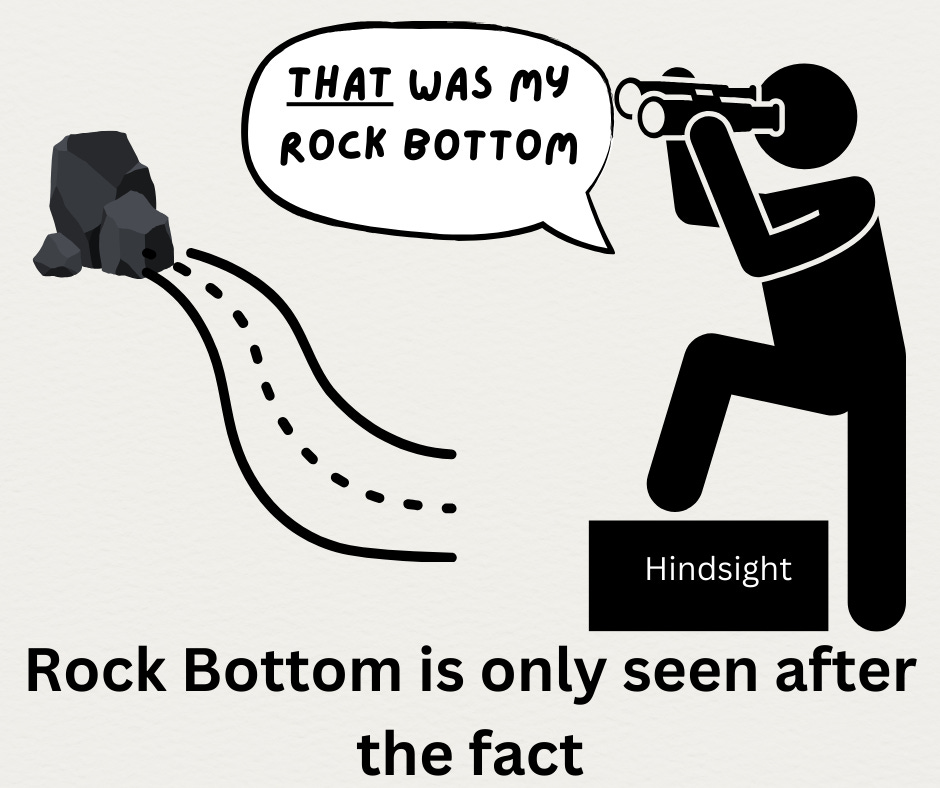This week, I am examining Rory Southerland’s third maxim: It doesn’t pay to be logical when everyone else is. I’ll explain his point and then see how it might apply to the world of recovery.
Logic is overrated. Just think about the wildly successful Dyson vacuum company. There are many logical reasons to have nipped that product idea in the bud.
Anyone with 800 dollars for a vacuum when it was introduced in 1995 probably wasn’t doing their own vacuuming.
The canister where the dust and filth collects is messier to empty than a traditional bag.
People only buy a vacuum when they have to. Vacuums are not in the category of treats and luxury.
And yet, Dyson became a breakout success that no logical person would have anticipated. After it became a success, people credited its attractive-looking design and the clear canister, which gave vacuumers a little hit of dopamine each time they could see dirt and dust appear within its plastic cylinder.
Perhaps Rory is right when he says, “It doesn’t pay to be logical when everyone else is.”
Give us more examples, Jason
OK. Take the SanPellegrino sparkling water company. Their product has an illogical foil cap. Rory says he imagines that people in the finance department have been trying to eliminate this needless cost for years. But, the foil provides something intangible that makes SanPelligrino classy enough to set out at a wedding, whereas something like Fanta would seem tacky.
Another example: Books
Books are another item that can’t be reduced to a logical proposition. If you think, “Books are portable text you can read,” then a Kindle is a perfectly logical invention. It reduces production costs and allows readers to take an entire library on a plane flight. Yet, Kindle sales have plateaued because tech prognosticators missed some of the book’s less-than-logical qualities.
For one, books feel good in your hands—that’s an unquantifiable benefit; thus, it is illogical. But that is not the only illogical quality of books. Giving a gift-wrapped book means something that giving a credit for an ebook just doesn’t. You can inscribe a nice little message on a book, which is a lovely but sentimental rather than logical reason to buy a book. A shelf full of books conveys an indefinable message about its owner that the contents of an E-reader do not.
Post hoc rationalizations
Whether an approach is grounded in logic or seems silly, there doesn’t seem to be a way to tell what will work unit after the fact. In science, post hoc, or “after the fact,” explanations are considered cheating. A good researcher will have a very explicit hypothesis ahead of time. You can’t just run a bunch of statistical tests to see what you get and then make up your hypotheses after the fact. If you do, you probably aren’t going to get your article published—at least not without adding a bunch of caveats to your discussion section.
IRL
But, post hoc reasoning is fair game in real life [IRL]. Most of the time, we observe a phenomenon, make up a reason why it happened, and then forget that we came up with the explanation after the fact. Our human limitations make post hoc rationalizations necessary. We don’t have the time or resources to conduct a thorough analysis of every decision. We often rely on hunches, rules of thumb, or gut feelings. If we’re right, we can make up some responsible-sounding post hoc justification for our actions.
Rock bottom
Take the famous “rock bottom” phenomenon. It’s the perfect example of a post hoc rationalization. When someone quits for good, they look after the fact for a reason. “Oh, my DUI was my rock bottom.”
But what about the 30,000 DUI arrests each year in Arizona? Will they result in each person quitting permanently? We don’t know.
Or what about having a child removed by the Department of Child Safety? Will parents whose children were removed be snapped into sobriety by the shock of child removal? The stats don’t look favorable.
Or what about a divorce, a job loss, a health scare, or very publicly humiliating event? Any of these MIGHT be someone’s rock bottom. But we only know after the fact.
Rock-bottom experiences are always post hoc explanations; it’s impossible to prescribe someone a rock-bottom experience.
Where does this leave us?
What this means for addiction is that we don’t know what will work. Just like we don’t know what vacuum, restaurant, or phone app is going to succeed, we don’t know what course of action will lead to sobriety. Sure, there are some "go-to” game plans for addiction. But nothing is certain.
But, does it really pay to be illogical in recovery? Success and failure in recovery are simply too unpredictable for me to suggest that it’s always a good idea to be illogical.
Sure. An obsession with logical approaches can prevent us from benefiting from illogical ones. But, being illogical isn’t a sure-fire path to sobriety, either.
However, there is one counter-logical approach that I stand behind. It’s one that the Apostle Paul advocates for in 1 Corinthians 1:23-25.
23 but we preach Christ crucified: a stumbling block to Jews and foolishness to Gentiles, 24 but to those whom God has called, both Jews and Greeks, Christ the power of God and the wisdom of God. 25 For the foolishness of God is wiser than human wisdom, and the weakness of God is stronger than human strength.
It may seem illogical that the execution of a Roman subject approximately 2000 years ago would have anything to do with overcoming addiction today. But, the message of love, self-denial, and hope in even the most adverse conditions compels many of us onward in our sobriety. Even more illogically, we believe this disfigured God-Man actually intervenes in our lives, turning our darkest moments into something precious and redemptive. “I thank God he sent me to prison. It was his mercy that took me out of that downward spiral and put me here.”
Is that a post hoc explanation? Sure. But, we also live with an unshakable pre hoc hope for the future. Hope tells us, “Keep going, Christian. Keep going even when it doesn’t seem worth it.”
"So we fix our eyes not on what is seen, but on what is unseen, since what is seen is temporary, but what is unseen is eternal" 2 Corinthians 4:18
I doubt this is what Rory meant, but clinging to the cross is one way it pays to be illogical when everyone else is being logical.
If you’d like to help a person in recovery find a reason—and you don’t care if the reason is pre or post hoc, you just want to see them find a reason—then consider giving to the ministry.








